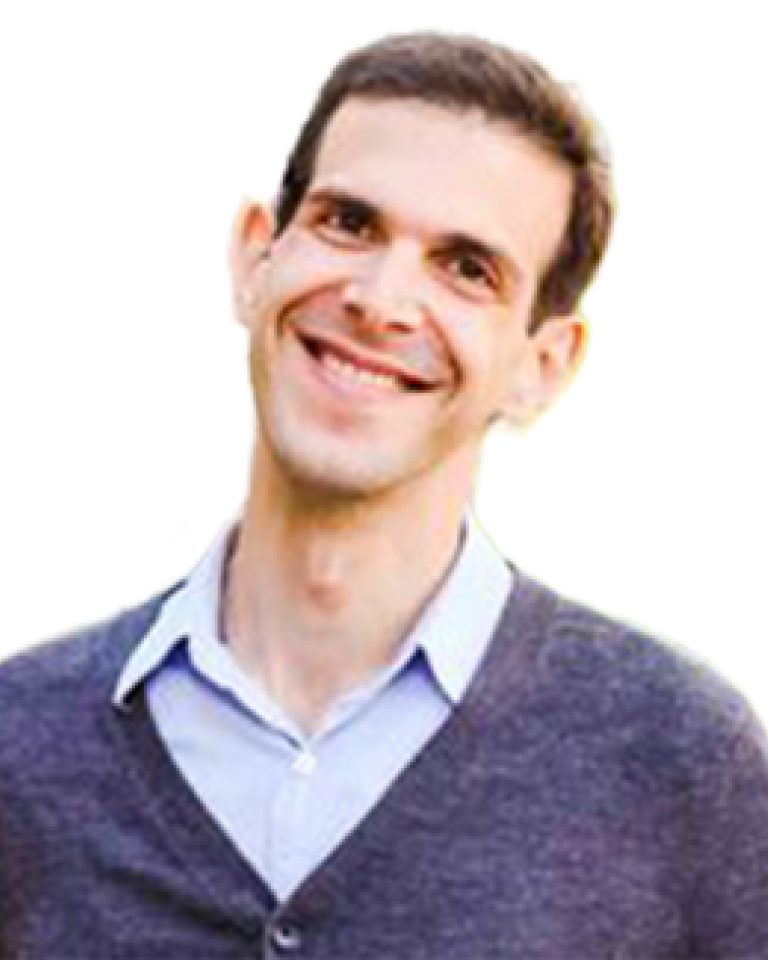Mark Landau

MENTOR SPOTLIGHT | WINTER 2018
Department: Psychology
Describe your work in a few sentences that we can all understand: My early work was in the area of “Existential Psychology,” which looks at how we grapple with the “big” questions about life, such as those surrounding death, control, and isolation. Mostly I studied why people are motivated to project meaning onto the world, but lately I study how people make meaning. Many concepts that matter to us—such as happiness, intelligence, immigration, and gun control—are inherently abstract and complex. I’m fascinated by the idea that metaphor, traditionally thought to be a mere figure of speech, is a mental tool for understanding such abstractions by relating them to concrete concepts that, although superficially dissimilar, share an underlying structure (like understanding an intelligent person as “sharp” or “bright”).
Q: How did you first get interested in doing research or creative work?
A: Honestly, for the first half of my undergrad career I was a middling student going through the motions. That all changed when a professor in one class presented some very cool theories in psychology. When I pestered him to learn more, he dumped nine doorstopper books in my lap and said not to return until I had read them all. Although I was understandably intimidated, that was the first time I felt entrusted to tackle big ideas on my own rather than passively accept them in predigested form through textbooks and lectures. From there, I was off to the races.
Q: What do students in your discipline learn by doing research that they wouldn’t learn by just taking classes?
A: Aside from specific skills like data analysis, students learn to be empowered through creativity. Social psychology is a science, to be sure, but it’s also an art. Our laboratory studies attempt to render observable people’s thoughts and feelings, and that can be a tricky business. After all, how do you quantify someone’s self-esteem, innermost values, or their gut-level prejudices? The field is known for its clever methods, and often these are what pique students’ initial interest, but the real thrill comes from creating your own.
Q: What do you find to be the most exciting part of doing research or creative work? What makes this line of work meaningful and interesting to you?
A: The most exciting part of my job is to sit down with students, listen to their ideas, and identify some novel questions we can ask about social thought and behavior. When students get excited to understand why and how people do what they do when they do it, I’m reminded of what makes this fun. A day without that process of mutual discovery can never be called a truly great day at work.
Q: What advice do you have for undergraduates interested in doing research in your field?
A: We all have a tendency to explain a person’s behavior in terms of her or his personality: Why did Tauneel help Mike? “Because she’s a nice person!” Why did Chris steal a Snickers? “Because he’s a thief!” Social psychology invites us to put on a different pair of glasses, one that directs our attention to the factors in a person’s context that influence how s/he thinks and acts. A student interested in social psychology research will want to feel comfortable thinking beyond “who people are” and looking carefully at what’s happening in their environment.
Q: For many students, doing research or a larger creative project is the first time they have done work that routinely involves setbacks and the need to troubleshoot problems. Can you tell us about a time that your research didn’t go as expected? Or about any tricks or habits that you’ve developed to help you stay resilient in the face of obstacles?
A: My research never goes as expected! How to stay resilient? Look, we start with our preferred prediction about what’s happening in nature and then collect our data. If the data do not support our prediction, that is not the end of the process, contrary to many textbook accounts. Research is not an interrogation where you badger nature to cough up the answer you want (which, by the way, is a good way to get that answer but for all the wrong reasons; see: bias in research). Rather, it’s a conversation with nature. Try setting your expectations aside and listening to what the data are telling you. Do unexpected patterns keep popping up? What might they mean? In my experience, many a “failed” study has been the seed for new and ultimately more innovative ideas. Research is a cycle: predict, observe, refine your predictions; observe better.
Q: How do you spend your time outside of work?
A: Research can be immensely fulfilling, but the fruits are a long time coming. Today’s research project may not see the light of day for years. With so much time separating your efforts and your successes, you can easily lose steam and doubt yourself. I recommend pursuing activities/projects outside of work that give you more frequent, concrete signs of personal progress. For me these days, that’s playing guitar, drawing, and photography. Create tangible products on the side to keep your self-esteem battery recharged.